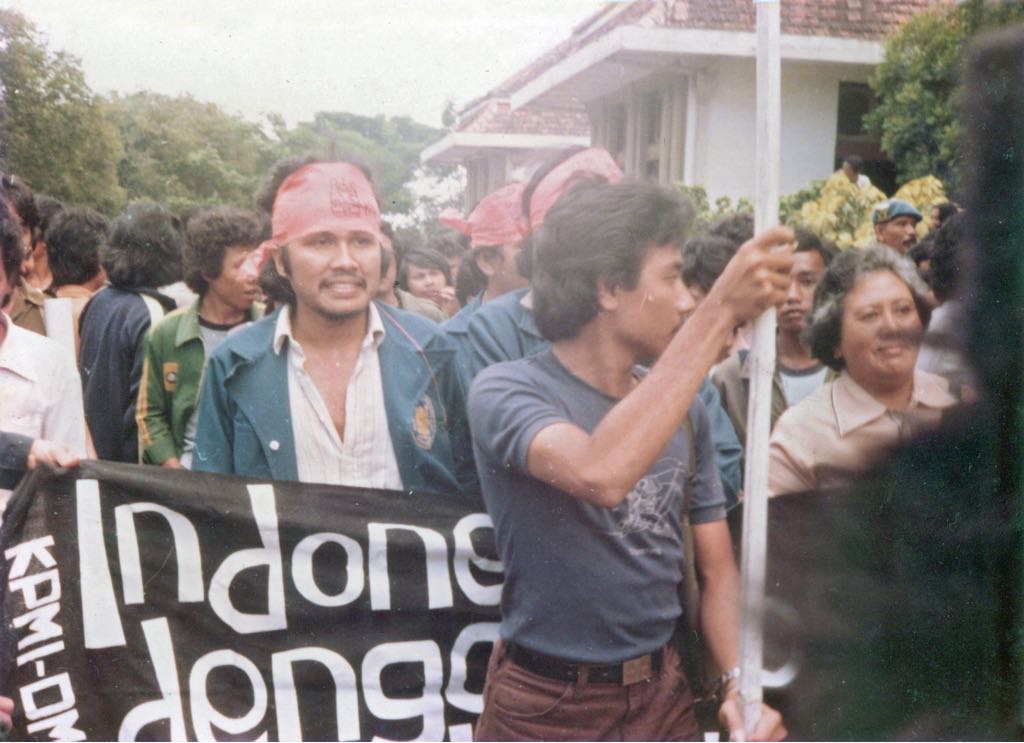Rizal Ramli (RR) and his parents are from Padang. He was forced to move to his grandmother’s house, Ny. Rahmah, in Bogor, West Java when he was six, due to the death of his parents.
Ramli’s father was an assistant district officer. While Mrs. RR was a known teacher in the discipline instilled with high morals and intellect. “My mother, Rabiah, died first when I was five years old. The next year my father, Ramli, followed” said RR started the story bringing him to Java.
At the age of 3, Rizal Ramli was already able to read. And for that, he says, is thankful to his mother who taught and guided at all times to learn the letters. “My mother is a teacher, so she taught me for a quick easy read. And for me, to be good in reading is the key to get better.”
After graduating from high school, Ramli continued his study at Institute of Technology, Bandung (ITB), where he studied Physics. He worked as a translator to pay his school fee in ITB.
He was an activist and the Chairman of ITB Students Council in 1977. Ramli and 3 of his friends were the authors of the “White Book”. In the book, he wrote about many criticism against the system of authoritarian rule in Indonesian government under the Soeharto regime. The white book also explores the practice of corruption, collusion and nepotism in Indonesian Government, particularly the family of President Suharto. Although the white book was eventually banned in the campus, copies were circulated around Java. The popularity also received media attention at that time. The book was then translated into 8 languages by Ben Anderson, a scholar from Cornell University, USA. One of the first critics to Soeharto in Indonesia at that time, Ramli was jailed for 6 months.
Ramli graduated from Boston University with a Ph.D. degree in economics in 1990.
After his return from the United States, he founded ECONIT Advisory Group, an independent economic think-tank, with some of his colleagues. Ramli and his team have been very critical on the government policies, particularly those with little emphasis on public and national interests, such as: national car policy, urea-tablet fertilizer, Freeport mining, etc.
